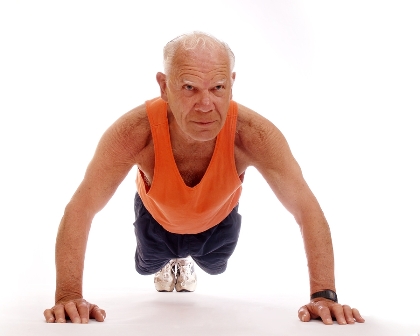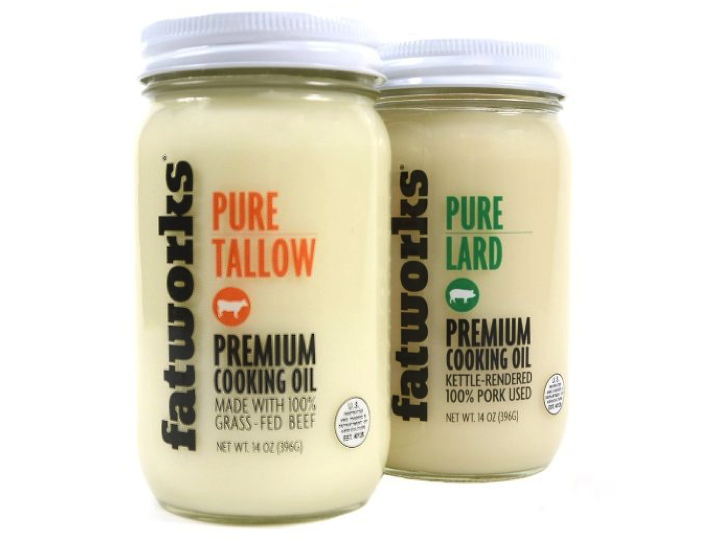Nutrition:
A new review study shows that heavily baked and boiled vegetables have less nutritional value than their raw counterparts, because of reductions in polyphenols (antioxidants). Interestingly, frying and steaming (in a pressure cooker) seemed to have the opposite affect; increasing the nutrient levels by 50 and 125%.
The other way you can improve the nutrient availability is to cook your vegetables with fat. This is something we’ve discussed in the past, and this recent study from the journal Food Chemistry demonstrates it again.
Along with eliminating your sugar addiction, eating fish continues to be the best thing you can do for your brain. With research in JAMA showing lower levels of Alzheimer’s for those maintaining a moderate consumption (at least once/week) of seafood throughout life. Yes, it was based on a food frequency questionnaire on 286 elderly folks for 10 years (leaving a high margin for error), but the results were especially significant for those carrying the increased susceptibility gene (APOE4). Further, the researchers clearly showed that the DHA benefits of seafood clearly outweigh any high-mercury concerns.
More evidence that cholesterol-rich eggs are NOT associated with heart disease according to a Fiinish study looking at myocardial infarction rates in 1032 men between 42 and 60 years of age. Sadly, the Fiinish researchers seem to only have half the equation figured out. As they mention eggs being a unique food in that they’re high in cholesterol but low in saturated fat….so close!
Likewise, researchers from Iowa State University gave diabetic rats the equivalent of approximately 18 eggs per day, and saw almost a 50% reduction in blood glucose and 52% drop in triglycerides compared to diabetic rats given standard chow. Interestingly, they also saw blood concentrations of vitamin D (25-hydroxyvitamin D-3) jump 148% higher; something they believe is a large contributor to the improvements. Which by the way, is only found in the yolks!
Similar to what we discussed in Live It NOT Diet!, 2 new review studies in the British Journal of Nutrition show that organic milk and meat contain far more beneficial omega-3 fatty acids and CLA than non-organic. Not to mention the lower omega-6’s, hormones, antibiotics and other crap. Remember, it only hurts your wallet if you refuse to go the extra mile and look up a local farmer. Plus, it’s not really more expensive when you factor in the extra supplements you won’t have to buy….and the future medical costs you won’t need.

Good bacteria in the gut feed on a sugar called sulfoquinovose (SQ), found in green leafy vegetables, according to new research in the journal Nature Chemical Biology. As we’ve talked about, this is just as important as starving bad bacteria (via diet) and adding beneficial microorganisms (via supplementation) in our quest for optimal gut health.
Nice study in the American Journal of Clinical Nutrition showing that obese breakfast eaters naturally increased their energy expenditure in the morning, consumed less later on, and exhibited better glucose tolerance. Compared to breakfast skippers, who made up for the missed calories later in the day (when fat tissue is sensitive), and tested poorly on the glucose tolerance test. Sure, there was no differences in weight. But as we’ve discussed, fat tissue is more sensitive as the day progresses, so the composition probably was. Plus, if we make that a nutrient-rich animal protein breakfast, superior results are pretty much guaranteed.
Fitness:
The Bulgarian Lunge (or Back Foot Elevated Split Squat) lead to equivalent improvements in strength, agility, and speed for 18 rugby players, when compared to the traditional Barbell Back Squat. Adding to the evidence we discussed here, and reiterating the fact that lifting something is better than lifting nothing.
“High Load Training increases muscle mass. Low Load Training increases muscle mass. Moral of story, lift weights consistently.” ― Jeremy Loenneke
Dr. Stuart Phillips and colleagues published another great article in the journal Sports Medicine discussing the importance of greater protein ingestion post-workout for elderly individuals to stimulate MPS (muscle protein synthesis). As they suggest, and I recommend in 1% Fitness, a post-workout dose of at least 0.05g per kg of bodyweight (approx. 40g) seems to be more appropriate than the 0.3g per kg (approx. 20g) that’s adequate for younger, more robust individuals.

If you’re having trouble committing to an exercise routine, bribery seems to work. Although, instead of an incentive each time the goal is reached, it seems getting the reward upfront with the consistent threat of losing it seems to work best. Researchers in the Annals of Internal Medicine found that individuals given $42 a month upfront with a deduction of $1.40 per day each time 7,000 steps were not performed (loss-incentive), had a higher percentage of success than a gain-incentive ($1.40/day) group, lottery group (chance of winning a big sum), and control group (no incentive). The bright spot, is that 30% of the control group reached the goal, compared to a minor but significant difference (45%) in the loss-incentive group.
Research from the American Journal of Men’s Health demonstrates the importance of exercising for health and longevity, not just a chiseled physique. The nice thing about this study, is that it tested bone mineral density in MEN. And not surprisingly, showed far greater hip and lumbar spine levels for those taking part in regular skeletal loading.
I’ve never been a fan of the ‘just move more’ advice, as it’s right up there with ‘just eat less.’ However, we do know that something as simple as walking goes a long way, and doesn’t even have to be excessive. This study from the journal Medicine & Science in Sports & Exercise adds to that case, showing drastic reductions in mortality for those replacing 30 minutes of sedentary time with 30 minutes of light activity (-20%), and even greater improvements with 30 minutes of moderate-to-vigorous activity (-51%).
Lifestyle:
The evidence continues to mount for chronic sitting (or sedentary time) and ill-health. With a new study in the journal Diabetologia, showing that every additional hour spent sitting increases type 2 diabetes risk by 22%, and the metabolic syndrome by 39%.
Not surprisingly, we also see a direction association between sleep difficulty and diabetes. This time, with evidence (again) from the journal Diabetologia showing a 22% increased risk for women reporting any of the following ‘sleep difficulty’ symptoms:
- sleeping difficulty
- frequent snoring
- sleep duration ≤6 h
- sleep apnea (or rotating shift work)
And women who exhibited all four – a 417% increase!!
According to a new study in the journal PNAS, the best way to get someone to confess to a crime they didn’t do is to deprive them of sleep. Which kind of makes you wonder what else you do on a daily basis that is the result of your poor sleep schedule. Doesn’t it?
Well, fortunately evidence from the University of California answered that. Demonstrating that the 1 in 15 North Americans with sleep apnea are experiencing brain damage; which could explain the high prevalence of memory loss, poor concentration, and depression seen in these individuals. The researchers attribute this damage to decreased levels of GABA (the brain’s off switch) and high levels of glutamate (the brain’s panic switch). That in addition to putting us into a consistent state of stress, initiates nerve and neuron damage.
Meditation has been practiced forever, but it’s once again gaining popularity in this 24-7 technologically-dominated world we call home. This study from the American Journal of Health Behavior shows that practicing ‘mindfullness’ is just as important for your metabolic profile, as it is for your physical and mental performance – improving glucose regulation and lowering obesity risk significantly.
Health & Disease:
Interesting new findings from The Lancet (Diabetes & Endocrinology) draw associations between height and the various metabolic diseases. With tall people exhibiting lower rates of diabetes and heart disease, but higher rates of cancer. The researchers comment on Dutch men and the Netherlands specifically, showing heights that are 20cm greater than they were 150 years ago. A phenomenon that could be explained by the increased consumption of (and reliance on) dairy products?

A research team in the International Journal of Obesity shows that BMI (Body Mass Index) is still a horrible predictor of health. This time showing that 50% of overweight and 29% of obese individuals (using the BMI calculation) are metabolically healthy, while 30% of normal weight individuals are not.
Consuming large amounts of fructose during pregnancy could have disastrous effects on the cardiometabolic health of your child later in life, according to this study in the American Journal of Obstetrics & Gynecology. The experiment was done on mice, but it serves as evidence that poor choices aren’t just negatively affecting your health, they’re negatively affecting someone elses….for the rest of their life!
Rapid weight loss doesn’t necessarily have to mean rapid weight gain. As this study in the journal Obesity demonstrates, the deciding factor is whether or not there were reductions in fat-free mass (i.e. MUSCLE!).
Medication & Supplementation:
Using data from an epidemiological study on 1,760 men, researchers from Northwestern University demonstrate an association between aggressive prostate cancer and low vitamin D levels. With blood levels below 30ng/dL resulting in an increased risk of 264%.
Low B12 levels are seen in the brains of the elderly and individuals with autism and schizophrenia, according to researchers in the journal PLoS One. The interesting takeaway is not just that B12 in the diet (i.e. MEAT) is essential to brain health, but that uptake of B12 from the blood needs to optimized. In other words, working to ensure your brain isn’t resistant to insulin, and heavily damaged by AGEs.
Stay Lean!
Coach Mike
RELATED ARTICLES:
Why Grass-Fed Meat is Worth It
How Poor Sleep Makes You Fat & Sick



